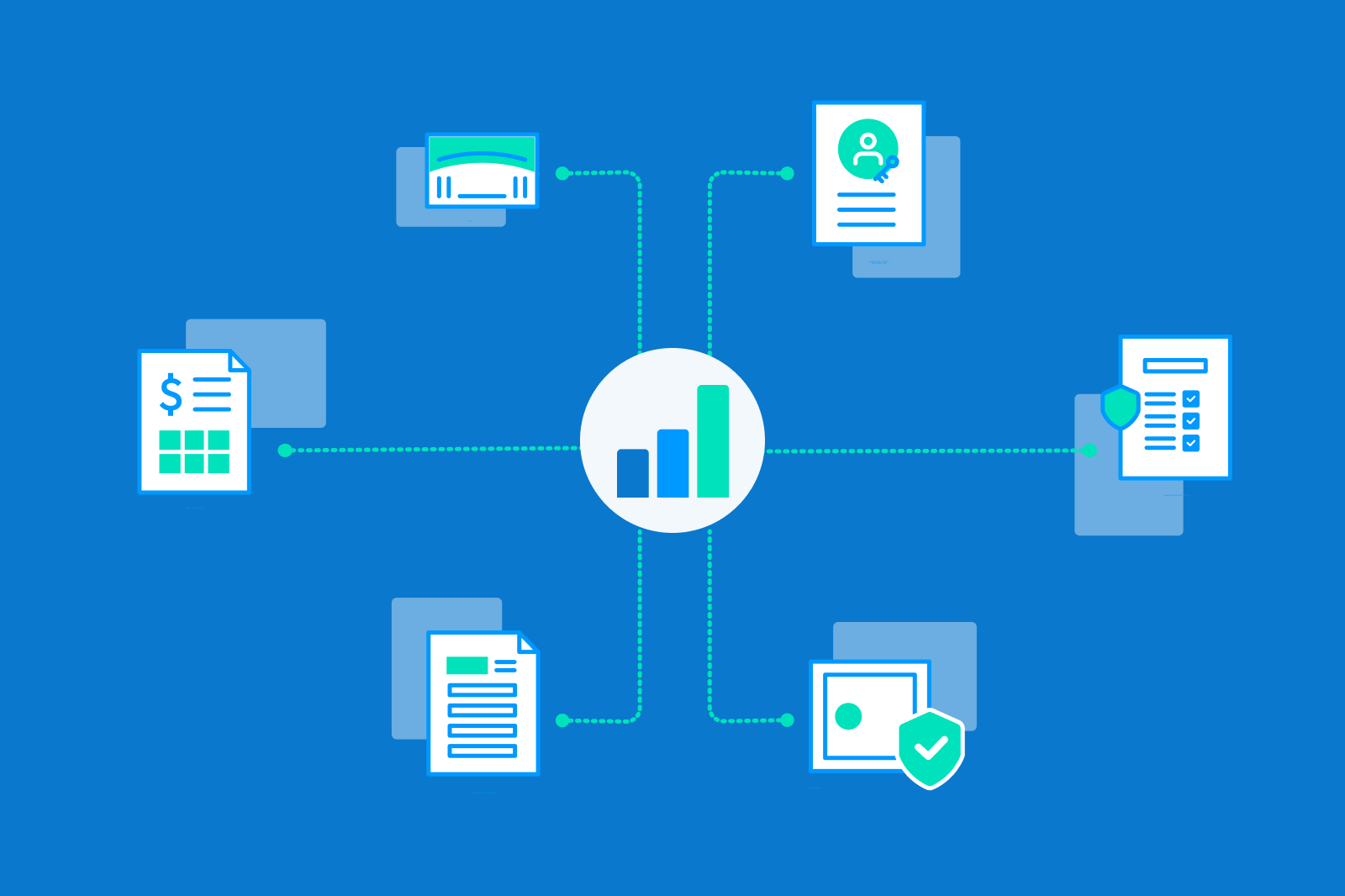Building a business credit score should be top of mind when starting your business
A business credit score indicates your company’s ability to repay another entity, such as a bank or vendor, who extends you money for services rendered by your company. A high-scoring business gives you more options for financing your ventures, leasing office space, hiring employees, and acquiring other assets that help you grow your company.
When you’re starting a business, building credit can be challenging. Many small business owners have no established business credit history and cannot secure a small business loan from banks or other financial institutions. Fortunately, there are many ways to improve your credit score that will only improve your financial standing, including paying off debt and establishing lines of credit. Here are some strategies that you can use to establish and build your business credit score.
Benefits of business credit
Business credit checks are common among banks and other lending institutions. Your small business can have its own business credit report and score. Its credit score affects its ability to borrow money.
How high your business credit score is will affect how much interest you pay on loans or other financial products. It also may determine whether you qualify for certain types of financing.
Do your personal finances matter for a business credit report?
Building business credit is different from building personal credit. Lenders will look at both your personal and business credit scores before making a loan decision. Financial partners may base their decision on your personal credit score. It can play a crucial role in the lending options that you have available to you.
Your personal credit score will affect how long it takes to build a good business credit score because if you have a personal credit history, lenders may not want to give you access to the capital you need. You should check your personal credit report before applying for a business credit card, if possible, to see if your bad credit would impact your ability to get a corporate credit card.
How to build business credit
A business credit score is important for many businesses, especially those who want loans or other forms of financing. If you want to build your business credit, here are some general steps to consider:
Establish your business
Establishing your business legally is an important first step to establishing a solid credit history separate from your personal credit history. This means that you need to form your business legally. Registering your business entity is what allows you to create a corporate credit profile.
There are several different types of business formation types you can choose from, such as:
- Sole proprietorship – A sole proprietorship is the simplest type of business structure. The sole proprietor is the only owner of the business.
- Partnership – Partnerships are similar to corporations in that they share business ownership with others. However, partnerships do not require a board of directors or shareholders.
- Limited liability corporation or limited liability company (LLC) – An LLC is a legal entity that protects members from lawsuits filed against them personally.
- Corporations – Corporations are owned by shareholders, who are usually individuals or groups of people. Corporations must also submit annual filings to the state.
Each type of entity provides its own benefits and drawbacks. Always consult with an expert if you aren’t sure which entity will work best for your business.
Register your small business with your state
Depending on where you live, each state has its own requirements for becoming a business. Most states require the registration of most businesses. This includes registering the company’s address, filing fees, and other information about the company. Once registered, you’ll receive a certificate showing that you formed your business.
Registering your business entity allows you to create a corporate credit profile. Additionally, some states require licensing if you want to operate legally.
Get an EIN from the IRS
The Internal Revenue Service issues Employer Identification Numbers, also known as EIN, to businesses. It is a nine-digit number that is a tax identification number unique to your separate business entity.
The process of applying for an EIN is easy and takes only a few minutes. The entire process can be completed online. Once you have an EIN, you can use this number to file taxes.
Apply for a DUNS number
A DUNS number is a unique identification number that identifies your company or organization. This number comes from Dun & Bradstreet, a business credit bureau. You can verify if a company has a DUNS number for free.
You can apply for one if your company does not have a Dun & Bradstreet number. While you can submit your application online, you will need three trade references to get your DUNS number.
Open accounts that report to business credit agencies
Opening a business credit card is an easy way to establish business credit. Having a credit card for your business can be an effective way to build its credit. Plus, many business credit cards offer perks like cash back and travel rewards.
However, corporate cards are only one form of business credit. Other business accounts, such as a bank loan, can also help. Be sure that your account is with a vendor that reports to the three major credit bureaus will help build your business credit history. To build business credit, you should open accounts with businesses that report to the major credit bureaus.
Build positive relationships with vendors
Your company’s reputation affects how much trade credit you get. Trade credit helps you manage your cash flow and improves your credit rating.
Whenever you sign a contract with a vendor, you are agreeing to terms. Be sure to read everything before signing anything to ensure that you can comply with the terms you agree to. This can prevent problems later due to missed obligations or misunderstandings.
Pay all bills on time
Paying on time is better than paying late and helps improve your business credit score. Late payments can hurt your business credit report, which affects your ability to borrow money. Early payments could mean better credit scores, which is one of the reasons to make all business car payments on time.
Monitor your small business’s credit
Three major business credit reporting agencies exist, Dun & Bradstreet, Equifax, and Experian. To avoid fraudulent activity or identity theft, a simple step you can take is to check your business credit reports every six months. Make sure you know how to dispute incorrect information before reporting it to the credit bureau, as an error on business credit reports can cause you to have poor business credit.
How long does establishing business credit take?

Building business credit takes time, especially if you’re just starting out. New accounts will take about 30 days to appear on your business credit report. Your small business credit score will increase once you’ve established an account history of paying bills on time.
There are many things that can affect your score, including payment history and other factors. On-time payments will help improve your business credit score over time.
How to maintain business credit
Maintaining your business credit rating is essential to the success of your business. One of the biggest factors in determining your business credit score is how well you manage your business finances, especially in terms of trends over time.
- Do you have many delinquent payments?
- Have your credit card companies offered you a credit line increase?
- Is your business credit card over its credit limit?
- Do your trade lines have outstanding balances?
- Are your credit utilization ratios too high?
There are all factors relating to your financial reliability as a company. Business lenders will want to conduct a credit assessment to ensure that your company manages its access to credit wisely.
Another factor in your business credit file is credit utilization. Ideally, you should keep your debt fairly low relative to the amount of credit that is available to you. If you have maxed out all of your credit accounts and don’t pay your balances on time, your company’s risk scores are higher than a company that has better documented financial responsibility.
Where to check your business credit score
Check your Equifax business credit score on Markaaz once you have claimed your business or with an agency that reports to all three major business credit bureaus.
The bureaus will send you a copy of your credit score if you request it. Some business checking accounts allow you to see your credit score through your business bank’s online portal. This can be a great way to assess your company’s financial health and protect its excellent credit.
Claim your business listing at Markaaz and get a free credit score
Building good business credit is important for any business owner. It allows you to get loans from banks and other businesses. You’ll also be able to secure financing for equipment purchases, supplies, and financing.
You can claim your business listing in the Markaaz Dashboard to get a free small business credit score from Equifax. Create your account to get started.




